BEIJING, Jan.9 -- Chinese Foreign Minister Wang Yi has set out China's four-point position on the South Sudan conflict, saying stability and development is most important for the new-born nation.
Wang made the stance clear during a recent interview with Al Jazeera, a Qatar-based pan-Arab TV channel, according to a news release from the Chinese Foreign Ministry on Thursday.
Talking on the four-point position, Wang said that China firstly upholds that a ceasefire should take effect and violence be stopped immediately, so as to make way for peace talks and maintain law and order in the country.
Secondly, it is imperative to launch an inclusive political dialogue process as soon as possible and find a solution acceptable to both sides, he said.
Thirdly, the international community should intensify efforts for peace talks, urging both sides to engage in serious dialogue.
Fourthly, it is important to improve the humanitarian situation in South Sudan. As large numbers of civilians have been caught in the crossfire and their lives, property and personal safety have been threatened, the international community should support and help them as much as possible, the foreign minister added.
"What is most important for South Sudan, a new-born nation with a lot to be reconstructed, is stability and development, without which the fundamental interests of all ethnicities in the country would be impaired," according to Wang.
"Conflict will bring suffering to all people in South Sudan in the end, which is not in the interests of South Sudan at all," he said.
Wang noted that since the outbreak of the violence, China has been urging the international community to send envoys for mediation efforts and has actively supported the mediation efforts of the Intergovernmental Authority on Development countries.
"We are indeed following very closely what is happening in South Sudan," he said.
Wang also expressed hope that the Government of South Sudan will take concrete and effective measures to protect the lives and properties of Chinese nationals in the country.
The conflict in South Sudan began on Dec. 15 when President Salva Kiir's government claimed that soldiers loyal to former deputy president Riek Machar, dismissed in July, launched an attempted coup.
 Chinese Consulate General in S.F. burned for arson attack
Chinese Consulate General in S.F. burned for arson attack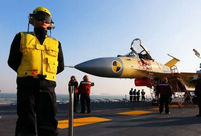 Roar of J-15 fighter is melody for operator on the Liaoning
Roar of J-15 fighter is melody for operator on the Liaoning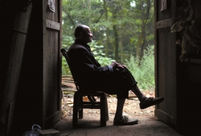 A 90-year-old forester's four decades
A 90-year-old forester's four decades Most touching moments in 2013
Most touching moments in 2013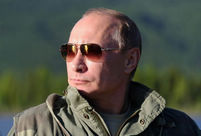 2013: Joys and sorrows of world politicians
2013: Joys and sorrows of world politicians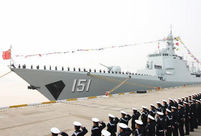 Missile destroyer Zhengzhou commissioned to Chinese navy
Missile destroyer Zhengzhou commissioned to Chinese navy China is technically ready to explore Mars
China is technically ready to explore Mars Photo story: Life changed by mobile technology
Photo story: Life changed by mobile technology Bullet train attendants' Christmas Eve
Bullet train attendants' Christmas Eve Shocking moments when PLA's weapons open fire
Shocking moments when PLA's weapons open fire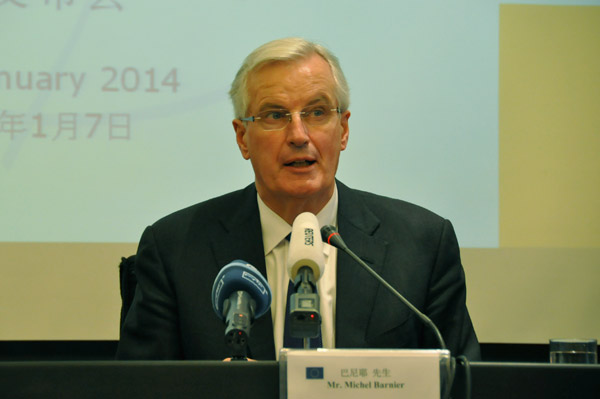 Barnier: China, EU should travel side by side on the road of reform
Barnier: China, EU should travel side by side on the road of reform 'Phubbing' people seen everywhere
'Phubbing' people seen everywhere China's bun brand to buy American coffee giant
China's bun brand to buy American coffee giant Yang Mi, Hawick Lau hold wedding in Bali
Yang Mi, Hawick Lau hold wedding in Bali Snowy, milky, cheesy Fribourg of Switzerland
Snowy, milky, cheesy Fribourg of SwitzerlandDay|Week|Month